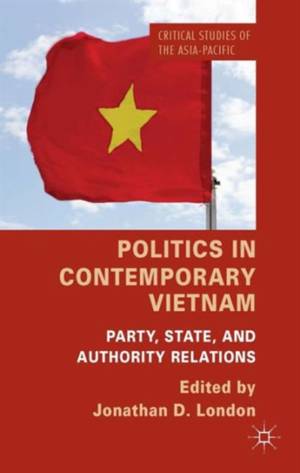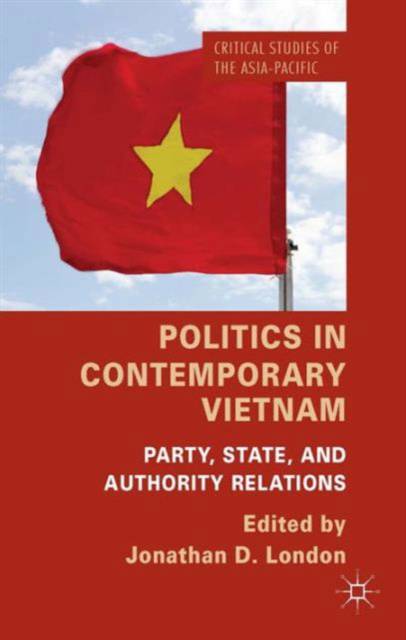
En raison d'une grêve chez bpost, votre commande pourrait être retardée. Vous avez besoin d’un livre rapidement ? Nos magasins vous accueillent à bras ouverts !
- Retrait gratuit dans votre magasin Club
- 7.000.000 titres dans notre catalogue
- Payer en toute sécurité
- Toujours un magasin près de chez vous
En raison de la grêve chez bpost, votre commande pourrait être retardée. Vous avez besoin d’un livre rapidement ? Nos magasins vous accueillent à bras ouverts !
- Retrait gratuit dans votre magasin Club
- 7.000.0000 titres dans notre catalogue
- Payer en toute sécurité
- Toujours un magasin près de chez vous
Politics in Contemporary Vietnam
Party, State, and Authority Relations
183,45 €
+ 366 points
Description
Vietnam's political development has entered an extraordinary, if indeterminate, phase. Comprising contributions from leading Vietnam scholars, this volume comprehensively explores the core aspects of Vietnam's politics, providing a cutting-edge analysis of politics in one of East Asia's least understood countries.
Spécifications
Parties prenantes
- Editeur:
Contenu
- Nombre de pages :
- 229
- Langue:
- Anglais
- Collection :
Caractéristiques
- EAN:
- 9781137347527
- Date de parution :
- 13-05-14
- Format:
- Livre relié
- Format numérique:
- Genaaid
- Dimensions :
- 140 mm x 216 mm
- Poids :
- 453 g

Les avis
Nous publions uniquement les avis qui respectent les conditions requises. Consultez nos conditions pour les avis.





